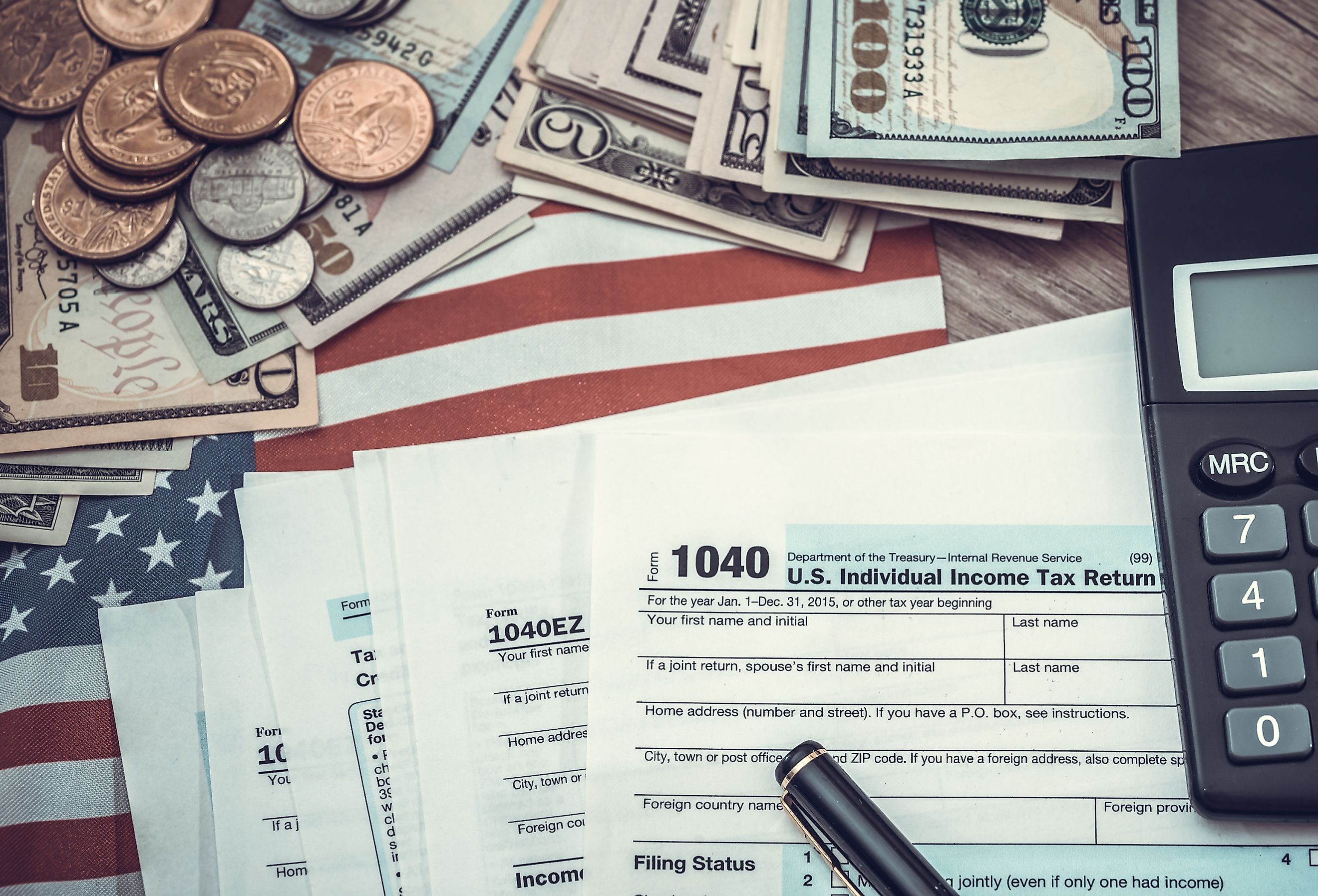
US States with the Lowest Income Tax
Making every dollar count is not just a wise idea, it is essential in this unforgiving global economy. For people who live paycheck to paycheck, giving up to 13.3% of income to the state (never mind the federal tax) is beyond discouraging after finishing a 60-hour workweek for multiple places of employment. However, the good news is that some US states seek to compete for your attention by adopting a low, income tax or ignoring income tax altogether. Naturally, property and sales tax rates in these places will bump up a little higher, so many clever citizens opt to get the best of both worlds. By living close to a border, they enjoy lower taxes on income and then lower taxes on purchases when shopping in the adjacent state. Regardless of how one chooses to take advantage of this dynamic, the first step is to examine the states that leave your income untouched.
The 12 US States with No/Low Income Tax
- North Dakota - No Income Tax
- Alaska - No Income Tax
- Florida - No Income Tax
- Nevada - No Income Tax
- South Dakota - No Income Tax
- Texas - No Income Tax
- Washington - No Income Tax
- Wyoming - No Income Tax
- New Hampshire - No Income Tax
- Tennessee - 1~2%
- Pennsylvania - 3.07%
- Indiana - 3.15%
North Dakota - Graduated Income Tax
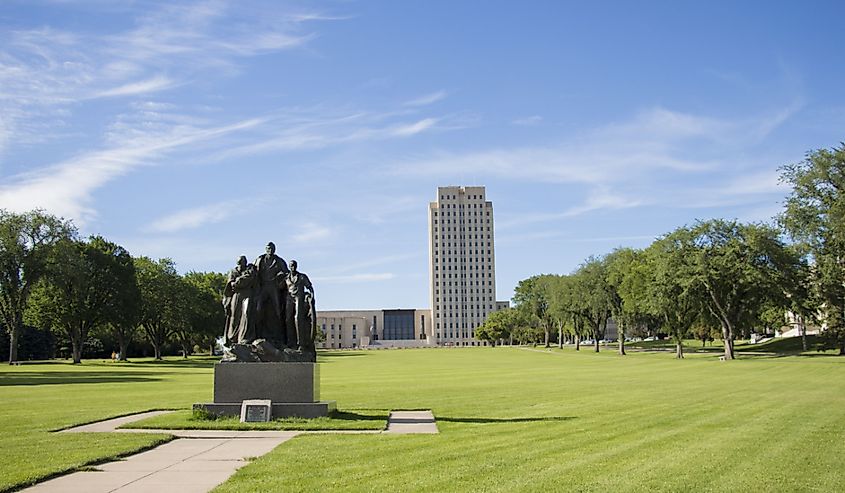
North Dakota makes use of a graduated individual income tax system; the rates range from a modest 1.10 percent to a maximum of 2.90 percent. This tax structure not only fosters economic growth but also encourages investment and relocation to the state. The progressive tax system ensures that low-income earners are minimally burdened while higher earners contribute a more significant portion of their income. This approach incentivizes productivity and entrepreneurship, leading to job creation and an improved standard of living for North Dakotans.
Alaska - No Income Tax

Alaska, known for its breathtaking peaks and ferocious wildlife, is one of the most attractive states for those seeking a low-income tax environment. The state imposes no personal income tax on residents, making it an ideal destination for those looking to minimize their tax burden. This favorable tax climate is primarily due to Alaska's vast natural resources, such as oil and gas, contributing to the state's revenue.
Alaska's Permanent Fund Dividend (PFD) program further sweetens the deal for residents. Established in 1982, the PFD is an annual payment to eligible Alaskans, derived from a portion of the state's oil and gas revenue. This dividend uniquely benefits residents, as they receive money for living in the state.
However, it is important to note that Alaska does have relatively high property and sales tax rates, as local governments rely on these sources for revenue. Despite this, the lack of income tax and the PFD program make Alaska an attractive option for those seeking a low-tax lifestyle.
Florida - No Income Tax
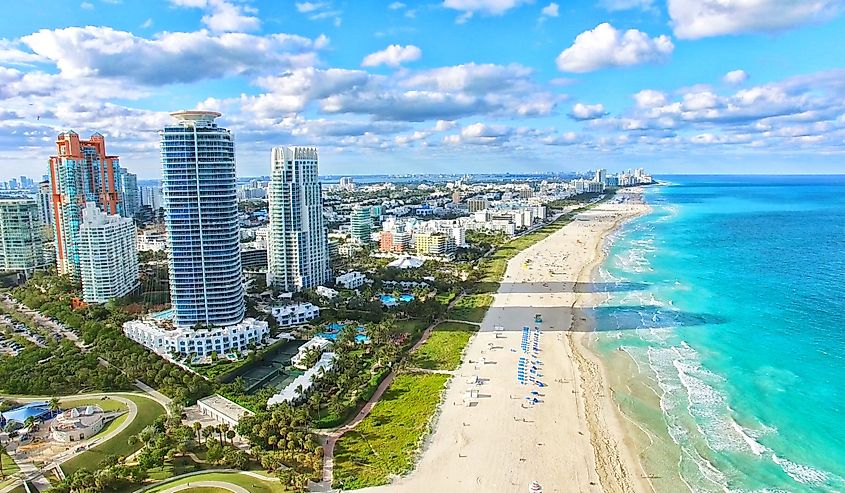
Florida's warm climate, beautiful beaches, and diverse cultural scene make it a worthy destination for many. But what truly sets the Sunshine State apart is its favorable tax climate. With no personal income tax, Florida appeals to those looking to save on their tax bill.
In addition to the lack of income tax, Florida has a relatively low sales tax rate, ranging from 3% to 6%, depending on the exchange. Property taxes, however, can vary significantly across the state. Property taxes are low in some counties and high in others. As a result, potential residents need to research property taxes in their desired location before deciding.
Nevada - No Income Tax

Nevada, famous for its vibrant cities like Las Vegas and Reno, is another state with no personal income tax. This attractive tax climate is primarily due to the state's significant revenue from the tourism, gambling, and mining industries.
Nevada also boasts relatively low property tax rates, with the state's average effective property tax rate being one of the weakest in the nation. However, sales taxes can be relatively high, with a statewide rate of 6.85% and additional local rates that can push the combined rate up to 8.23% in some areas.
South Dakota - No Income Tax

With its wide-open spaces and natural beauty, South Dakota is another low-income tax state, as it does not impose a personal income tax on its residents. This favorable tax climate is mainly due to the state's reliance on sales tax revenue and taxes on specific industries like agriculture, tourism, and financial services.
South Dakota has a 4.5% statewide sales tax rate, with some municipalities adding additional local taxes. While the combined sales tax rate can be relatively high in some areas, the state's property tax rates are more moderate. Overall, South Dakota's lack of income tax and low cost of living make it an attractive destination for those looking to save on taxes.
Texas - No Income Tax

The Lone Star State, Texas, is famous for its rich history, diverse culture, and expansive landscapes. One of the many advantages of living in Texas is its lack of personal income tax, making it an attractive destination for those looking to minimize their tax burden.
Texas compensates for the lack of income tax by relying heavily on property and sales taxes. The state has one of the country's highest effective property tax rates, and it varies depending on the county. Additionally, Texas imposes a 6.25% statewide sales tax, with local jurisdictions able to add up to 2% more, resulting in a maximum combined rate of 8.25%.
Despite the high property and sales tax rates, Texas remains a popular choice for those seeking a low-income tax environment and a relatively affordable cost of living in many areas of the state.
Washington - No Income Tax

Washington, in the Pacific Northwest, is known for its mesmerizing natural beauty, vibrant cities like Seattle, and innovative technology scene. This state, like others on this list, does not impose a personal income tax on its residents, making it a desirable destination for those looking to save on taxes.
As a compromise, however, the state has a 6.5% base sales tax rate, and when combined with local taxes, the rate's maximum is 10.4%. Washington's property tax rates are generally moderate, although they vary depending on the county.
Wyoming - No Income Tax
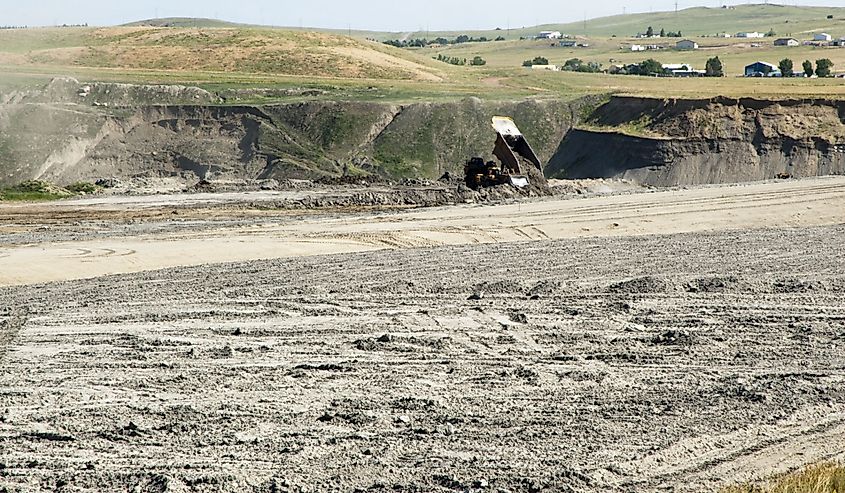
Wyoming, known as the Cowboy State, is renowned for its wide-open spaces and wild-west history. In addition to its natural attractions, Wyoming does not impose a personal income tax on its residents.
The state's favorable tax climate is partly due to its substantial mineral extraction and tourism revenue. Wyoming has one of the lowest sales tax rates in the country, with a base rate of 4%, and local jurisdictions can add up to 2% more, resulting in a maximum combined rate of 6% (the average is closer to 5.36%). The state's property tax rates are also relatively low, making Wyoming an even more attractive option for those looking to save on taxes.
With no income tax, low sales and property tax rates, and a low cost of living, Wyoming stands out as an appealing destination for those seeking a tax-friendly environment.
New Hampshire - No Income Tax
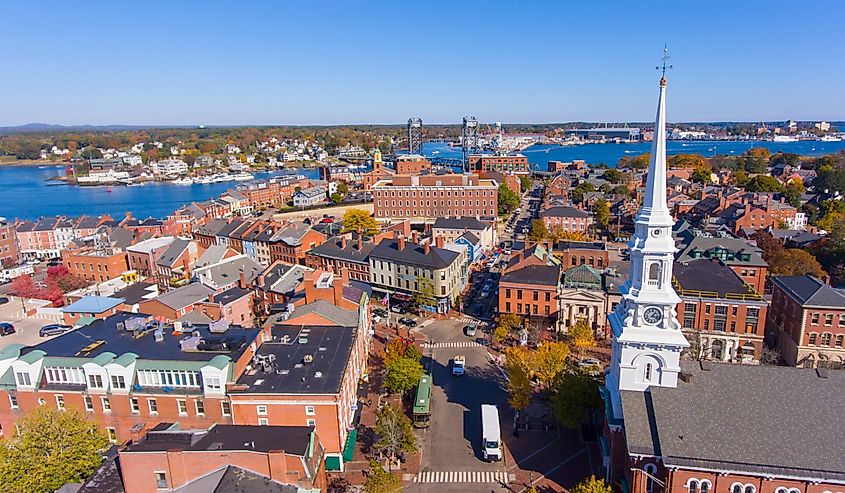
In the picturesque New England region, New Hampshire is known for its charming small towns, beautiful landscapes, and lumberjack-themed apparel. While the state does have a limited income tax, it only applies to interest and dividend income. Earned wages are not taxed, making New Hampshire a favorable location for those looking to save on taxes.
To make up for the lack of a comprehensive income tax, New Hampshire relies on property taxes as a primary source of revenue. The state has one of the country's highest effective property tax rates. However, New Hampshire does not impose a general sales tax, which can help offset the high property taxes for some residents.
Tennessee - 1~2%

Tennessee, known for its rich musical heritage and beautiful landscapes, has a unique tax situation. While the state does not impose a traditional personal income tax, it does levy a tax on interest and dividend income, at a flat 1 to 2% rate.
The Volunteer State also has one of the country's highest combined sales tax rates, with a base rate of 7% and additional local rates that can push the combined rate up to 9.75% in some areas. This high sales tax rate helps offset the lack of income tax and contributes to the state's revenue.
On the other hand, Tennessee's property tax rates are generally moderate, with the effective property tax rate falling near the middle compared to other states. However, rates can vary depending on the county, so potential residents should investigate property taxes in their desired location before deciding.
Pennsylvania - 3.07%

Pennsylvania's flat income tax rate is 3.07%. This relatively low rate has several implications for both the state's economy and its residents. For individuals and families, the flat rate offers a degree of predictability and simplicity when it comes to filing taxes.
However, critics argue that Pennsylvania's flat tax rate may exacerbate income inequality and underfund essential public services. A flat tax rate means that lower-income individuals pay a larger percentage of their income in taxes compared to those with higher incomes, as the tax burden is not progressively distributed. The lower tax revenue generated may also lead to insufficient funding for public education, healthcare, and infrastructure.
Indiana - 3.15%

Indiana has a personal income tax rate of 3.15%. This rate is significantly lower than the national average. Additionally, Indiana does not have local sales taxes, making it even more attractive for individuals looking to save money on taxes.
Despite its low tax rate, Indiana still manages to provide high-quality services and infrastructure to its residents. The state has consistently ranked high in national surveys for its low cost of living and business-friendly environment, making it a great place to live, work, and do business.
Low-income tax states offer a variety of benefits to residents seeking to minimize their tax burden. When considering relocation to a low-income tax state, it is essential to evaluate the income tax situation, the overall tax structure, the cost of living, and the state's quality of life. Furthermore, relocating is often more about what one leaves behind, such as family and friends, than potential gains. At the end of the day, social interaction and relationships are unquestionably more valuable than numbers on a spreadsheet, but it never hurts to save a little.











